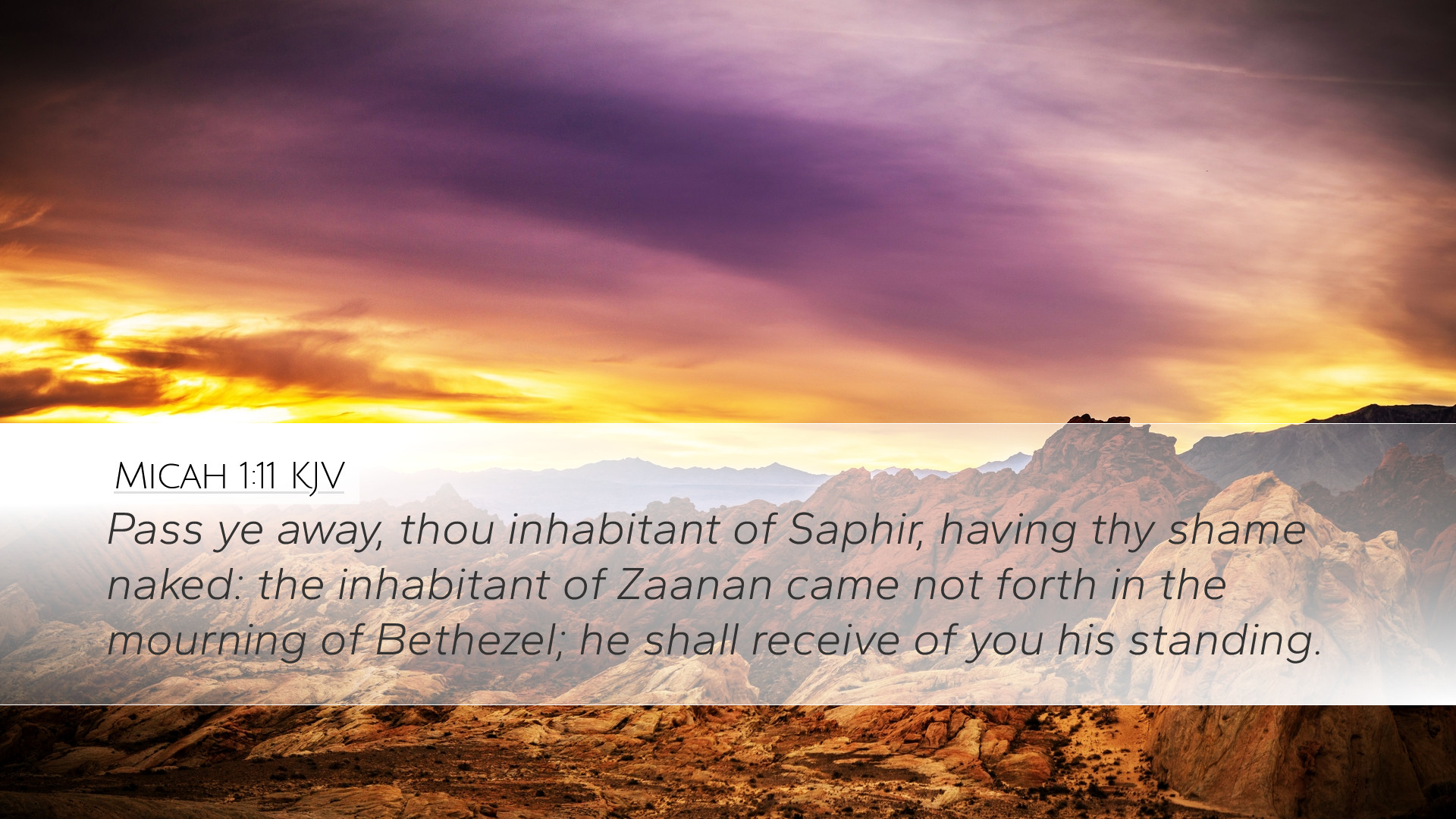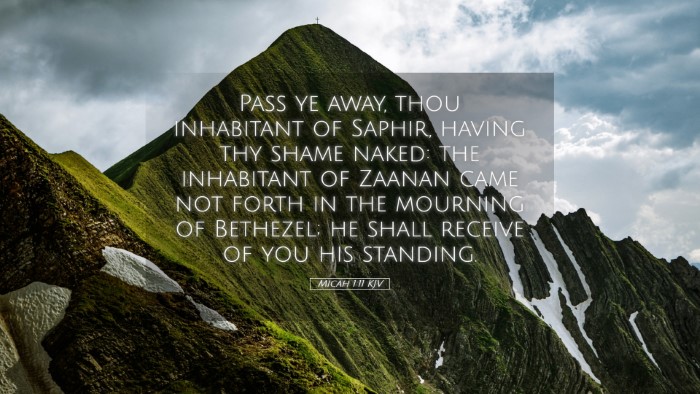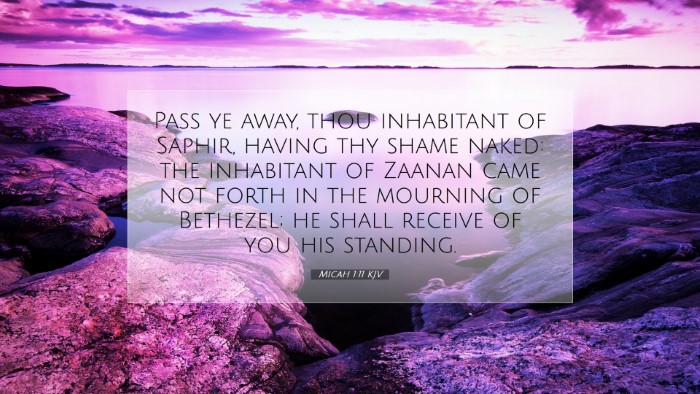Old Testament
Genesis Exodus Leviticus Numbers Deuteronomy Joshua Judges Ruth 1 Samuel 2 Samuel 1 Kings 2 Kings 1 Chronicles 2 Chronicles Ezra Nehemiah Esther Job Psalms Proverbs Ecclesiastes Song of Solomon Isaiah Jeremiah Lamentations Ezekiel Daniel Hosea Joel Amos Obadiah Jonah Micah Nahum Habakkuk Zephaniah Haggai Zechariah MalachiMicah 1:11
Micah 1:11 KJV
Pass ye away, thou inhabitant of Saphir, having thy shame naked: the inhabitant of Zaanan came not forth in the mourning of Bethezel; he shall receive of you his standing.
Micah 1:11 Bible Commentary
Commentary on Micah 1:11
Micah 1:11 states: "Pass ye away, thou inhabitant of Saphir: having thy shame naked: the inhabitant of Zoan came not forth to the mourning of Bethel." This verse invites a critical examination of the prophetic message conveyed by the prophet Micah in the context of God's impending judgment on Israel and Judah. The rich symbolism and geographical references provide depth that warrants careful study.
Contextual Overview
Micah prophesied during a time of social upheaval, when the Northern Kingdom of Israel faced moral decay and impending judgment. His messages often oscillate between condemnation and hope, with a strong emphasis on the need for justice and righteousness among God's people. In Micah 1:11, he specifically addresses the inhabitants of various cities, highlighting their spiritual condition.
Verse Breakdown
1. Saphir - "Pass ye away, thou inhabitant of Saphir"
The term "Saphir" (meaning "beautiful") is symbolic of the deceitful allure of sin. Matthew Henry notes that its residents are called to "pass away," which implies a departure not only from their physical location but also from their security and peace. The judgment upon them strips away their façade, exposing their shame and vulnerability.
2. "Having thy shame naked"
This phrase reflects the exposure of sin and guilt. Adam Clarke emphasizes that the inhabitants of Saphir are laid bare before God, their pretense of righteousness obliterated. The imagery of nakedness serves as a potent reminder of the repercussions of turning away from God's statutes and the inevitable revealing of one’s true nature.
3. Zoan - "the inhabitant of Zoan came not forth"
Zoan was a city of Egypt, historically associated with idolatry and oppression. Albert Barnes comments that its inhabitants’ lack of response to mourning signifies apathy and spiritual blindness amid calamity. Their refusal to participate in the mourning of Bethel further underscores their rejection of divine sorrow and repentance, illustrating their hardened hearts.
Theological Implications
This verse serves as a stark reminder of the consequences of living in disobedience to God's commands. The exclusion from mourning highlights an essential truth: disconnectedness from God leads to a lack of empathy and remorse for sin. Additionally, the prophetic lament serves as a call to introspection for modern believers regarding their engagement with God and community.
Pastoral Applications
- Awareness of Sin: Pastors are encouraged to remind congregants of the reality of sin and the need for repentance. As Micah exposes the shame of Saphir, believers are called to examine their lives and acknowledge their shortcomings before God.
- Compassion for Others: The inhabitants of Zoan's detachment from mourning reflects a warning against apathy in the church. Ministers should foster a culture of compassion that echoes Christ's call to bear one another's burdens (Galatians 6:2).
- Call to Revival: Micah’s words urge a response of revival and prayer among God's people. The need for genuine mourning over sin is essential for spiritual renewal within congregations.
Conclusion
Micah 1:11 sheds light on the dire consequences of spiritual neglect and the need for authentic engagement with God. The historical and literary context provides a sobering reminder of God’s holiness, justice, and the pervasive nature of grace that beckons sinners to return to Him. As biblical scholars and theologians explore this text, they are invited to consider its implications for contemporary faith communities, ensuring that they remain vigilant and responsive to the call of God amid the trials of life.


